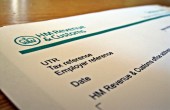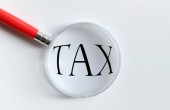How will Supervision Direction or Control rules affect Contractors
Article Author: Colin Howell Posted on: April 14, 2016 (Full Author Bio in the box on the right side) 3237 views
3237 views

From 6th April HMRC are introducing new legislation relating to the way contractor status will be determined and ultimately how they will be paid. While this is only one of a new wave of measures to tackle avoidance within the contracting industry, we must highlight that HMRC does not always get things right (Take IR35 for instance), but whatever it does, right or wrong, has far reaching consequences.
As with all HMRC led initiatives things are not straightforward, so we will explain in detail.
From 6th April a contractor will only be able to claim travel (including subsistence) if the contract assignment they are working on falls outside of Supervision Direction or control. This is regardless of how the worker has structured him or herself.
HMRC have stressed that they are only focusing SDC on the method of how the work is undertaken, not when and where, so a worker who is told where to undertake the work and at what time will NOT be under SDC for these purposes should he/she be able to determine how the work is then undertaken.
A good example is an IT developer requested to visit the client site at 9 and leave at 6, being told what software platform to develop on. However, upon arrival at the site the developer receives instruction to design and implement a new piece of software to give a certain result.
The worker goes off and starts working autonomously in creating this software, stopping now and again to check in with a progress report for the client. The developer, being regarded as an expert, is therefore able to undertake the actual work as he or she sees fit.
In this scenario, the worker would be able to convince HMRC that while there is direction and control, there is no SDC in relation to how the work is undertaken.
While this example is a simple one to determine, others may well be complicated because HMRC has suggested that SDC can be “implied” so even if in practice SDC doesn’t happen but the client has the right to exercise SDC then the status would fail in this regard.
HMRC’s guidance notes can be found on the following link:
Consequences
Under this new legislation, HMRC has also created “personal liability” for the directors of the company employing the worker, so either the directors of the umbrella company or the actual worker of a Personal Service Company (PSC).
So unlike IR35, where getting it wrong may cost you the company, the worker usually walks away with no financial penalty, getting this wrong has significant financial penalties.
Assessment of SDC
Instead of keeping things simple and having one test for all, HMRC decided that workers with a Personal Service Company could use IR35 to determine their SDC status. If the assignment falls within IR35 then no tax relief on travel expenses to the site will be claimable.
With an umbrella worker, the umbrella company now needs to undertake an assessment of the working assignment, which is often difficult due to the lack of contractual arrangements with the actual end hirer. Therefore, the umbrella will rely on the workers to undertake this assessment on our behalf.
Either way the umbrella company needs to gather information to determine the SDC status to ensure the correct tax relief is given.
Small Print
As with all new legislation the devil is in the detail and with no test cases to rely upon compliance activity needs to remain high until clarity becomes available based on fact rather than opinion.
We have listed below some definitions to help with the understanding:
Excluded services:
1. Where a worker provides his services wholly in the client’s home.
2. Multi-site assignments – such as District Nurses – travel from home to the hospital is not claimable, however, travel throughout the day to various patients is claimable except the journey from the last appointment back home.
Travel:
Travel and subsistence includes accommodation, mileage, actual travel costs, such as bus or train fairs and food and drink. However, travel does not include incidental costs.
Latest Posts
-

Staying HMRC Compliant: VAT Returns Have Chan...
by Amanda Swales on January 29, 2020 Accounting & Tax -

Self Assessment Tax Return 101 - Filling In T...
by Amanda Swales on January 15, 2020 Accounting & Tax -

-



 Is there light at the end of the tunnel for UK Contractors
Is there light at the end of the tunnel for UK Contractors  How to deal with unplanned time off for UK Contractors
How to deal with unplanned time off for UK Contractors  Doubt is cast on HMRC new IR35 proposals for contractors
Doubt is cast on HMRC new IR35 proposals for contractors  Why Contractors should set up a home office
Why Contractors should set up a home office  How will Supervision Direction or Control rules affect Contractors
How will Supervision Direction or Control rules affect Contractors  Is it time to break up with your Accountant
Is it time to break up with your Accountant  First Time Buyers take advantage of the new Help to Buy ISA
First Time Buyers take advantage of the new Help to Buy ISA  What is Contractor Mortgages and how to secure the best mortgage deal?
What is Contractor Mortgages and how to secure the best mortgage deal?  What is the 24 month rule and how does it apply to Contractors
What is the 24 month rule and how does it apply to Contractors  Why Contractors should save for a rainy day
Why Contractors should save for a rainy day  The golden rule of Contracting
The golden rule of Contracting  Why Contractors Need To Understand IR35
Why Contractors Need To Understand IR35  How does the recent IR35 changes in the public sector affect UK contractors?
How does the recent IR35 changes in the public sector affect UK contractors?  HMRC Employment Status Service tool - How accurate is it in determining the IR35 risk for contractors?
HMRC Employment Status Service tool - How accurate is it in determining the IR35 risk for contractors?  The true value of umbrella companies for UK contractors
The true value of umbrella companies for UK contractors  How IR35 reforms in the private sector going to affect the self-employed?
How IR35 reforms in the private sector going to affect the self-employed?  Changes to the Flat Rate VAT Scheme are coming - are YOU ready?
Changes to the Flat Rate VAT Scheme are coming - are YOU ready?  Chancellor announced dividend tax hike from April 2016
Chancellor announced dividend tax hike from April 2016  Benefits for Freelance Contractor Mortgages Insurance
Benefits for Freelance Contractor Mortgages Insurance  Top 10 cash flow tips for IT Contractors
Top 10 cash flow tips for IT Contractors  A checklist and timeline for new Contractors
A checklist and timeline for new Contractors  Personal Service Company Guide for UK Contractors
Personal Service Company Guide for UK Contractors  FCSA calls for HMRC to abandon its consultation on public sector use of off payroll staff
FCSA calls for HMRC to abandon its consultation on public sector use of off payroll staff  The future of IR35 in the public and private sectors
The future of IR35 in the public and private sectors  RIP Business Entity Tests
RIP Business Entity Tests  Fun ways to save money for the adventurous contractor
Fun ways to save money for the adventurous contractor  APSCo backs call for strategic review which could end raw deal for contractors
APSCo backs call for strategic review which could end raw deal for contractors  How much salary should I pay myself as a Limited Company Contractor
How much salary should I pay myself as a Limited Company Contractor  Autumn Statement 2016 - How will the VAT Flat Rate Scheme Restriction Affect Contractors?
Autumn Statement 2016 - How will the VAT Flat Rate Scheme Restriction Affect Contractors?  General Elections from the Tax perspective for UK Contractors
General Elections from the Tax perspective for UK Contractors  How can a contractor be a winner in the tax race
How can a contractor be a winner in the tax race  Is Umbrella Company the best solution for first-time Contractors?
Is Umbrella Company the best solution for first-time Contractors?  10 Must Have iOS Apps for UK Contractors
10 Must Have iOS Apps for UK Contractors  How the 2015 Budget could affect you as an Independent Contractor
How the 2015 Budget could affect you as an Independent Contractor  Contractor paid 2500 GBP to HMRC for tax return mess up
Contractor paid 2500 GBP to HMRC for tax return mess up  Top 5 things a first-time Contractor should do when switching to Contracting
Top 5 things a first-time Contractor should do when switching to Contracting  Why compliance has lost its meaning for contractors
Why compliance has lost its meaning for contractors  How Important is IR35 and Tax Planning to Contractor Accountants
How Important is IR35 and Tax Planning to Contractor Accountants  What is Required For Your First Digital VAT Return: Making Tax Digital
What is Required For Your First Digital VAT Return: Making Tax Digital  Festive Gift Ideas for Limited Company Directors
Festive Gift Ideas for Limited Company Directors  What forms do I need to submit In my tax return?
What forms do I need to submit In my tax return?  Insulting to Contractors
Insulting to Contractors  Why it is important for Contractors to network effectively
Why it is important for Contractors to network effectively  The top 3 common mistakes Contractors make
The top 3 common mistakes Contractors make  Election 2015 - what is in it for contractors and freelancers
Election 2015 - what is in it for contractors and freelancers  MP David Morris calls for new IR35 legislation for Contractors
MP David Morris calls for new IR35 legislation for Contractors  Is contracting the key to a successful and family-friendly career
Is contracting the key to a successful and family-friendly career  Great Chance to Win a Trip to Monaco for IT Contractors
Great Chance to Win a Trip to Monaco for IT Contractors  FCSA urges Osborne to get his facts right before tarnishing all contractors
FCSA urges Osborne to get his facts right before tarnishing all contractors  Understanding tax basics - a guide for contractors
Understanding tax basics - a guide for contractors  Intermediaries' legislation - IR35: What is the likely impact of the new rules for contractors working in the public sector?
Intermediaries' legislation - IR35: What is the likely impact of the new rules for contractors working in the public sector?  IR35 IT Contractors And Office Holders
IR35 IT Contractors And Office Holders  What can Limited Company contractors expect from the Budget 2017?
What can Limited Company contractors expect from the Budget 2017?  5 benefits of contracting through an umbrella company
5 benefits of contracting through an umbrella company  The rise of the female contractor
The rise of the female contractor  How to avoid time between contracts
How to avoid time between contracts  The Taxman is going to war on UK Contractors
The Taxman is going to war on UK Contractors  Barclays and Citigroup are the latest to cut IT Contractor pay
Barclays and Citigroup are the latest to cut IT Contractor pay  How will the new tax year affect IT Contractors and Umbrella Companies
How will the new tax year affect IT Contractors and Umbrella Companies  Umbrella Company and IR35
Umbrella Company and IR35  The 10 commandments of contracting
The 10 commandments of contracting  Simple guide to Tax relief on Motor expenses and business mileage
Simple guide to Tax relief on Motor expenses and business mileage  Sole Enterprise with Protected Assets or Limited Company - Which is better for Contractors?
Sole Enterprise with Protected Assets or Limited Company - Which is better for Contractors?  Budget is good for small business but still hurts contractors
Budget is good for small business but still hurts contractors  6 free tools all contractors should use
6 free tools all contractors should use  UK plc confused about T&S regulations says FCSA research
UK plc confused about T&S regulations says FCSA research  How will Autumn statement affect Contractors?
How will Autumn statement affect Contractors?  Will the low rates mortgage price war benefit UK Contractors?
Will the low rates mortgage price war benefit UK Contractors?  RTI offers annual option for contractors
RTI offers annual option for contractors  Registrar of Companies Scam Letter sent to Businesses
Registrar of Companies Scam Letter sent to Businesses  What does change in dividends mean to UK Contractors
What does change in dividends mean to UK Contractors  HMRC admits contractor tax change legislation needs a rewrite
HMRC admits contractor tax change legislation needs a rewrite  Professional Indemnity Insurance Explained
Professional Indemnity Insurance Explained  How HMRC continue to confuse matters for Contractors and Agencies
How HMRC continue to confuse matters for Contractors and Agencies  First Time Buyers get cashback on Contractor Mortgages
First Time Buyers get cashback on Contractor Mortgages  Why Brexit will not be an easy exit
Why Brexit will not be an easy exit  What a Directors loan means and who can take one
What a Directors loan means and who can take one  How IT Contractors can become an expenses wizard
How IT Contractors can become an expenses wizard  Relieve the stresses of Limited Company contracting with 4 simple solutions
Relieve the stresses of Limited Company contracting with 4 simple solutions  Contractors feel puzzled of the UK job market
Contractors feel puzzled of the UK job market  5 Trusted Contractor Services Providers in the UK
5 Trusted Contractor Services Providers in the UK  How important is it to protect your income as a contractor
How important is it to protect your income as a contractor  What all recruiters need to know
What all recruiters need to know  Do I Need To Complete The Self Assessment? How To Know If You Have A Tax Return Due
Do I Need To Complete The Self Assessment? How To Know If You Have A Tax Return Due  Beginners Guide to IT Contracting
Beginners Guide to IT Contracting  Why Contractors MUST Download TeraCopy Freeware
Why Contractors MUST Download TeraCopy Freeware  Amendments in Finance Bill to prevent misuse of Personal Service Companies
Amendments in Finance Bill to prevent misuse of Personal Service Companies  Parents working full time file petition for free childcare
Parents working full time file petition for free childcare  Where is your IT contracting career going
Where is your IT contracting career going  Why Contractors in trust based schemes should think twice
Why Contractors in trust based schemes should think twice  5 New Contractor Mortgages Friendly Lenders Enter The Market
5 New Contractor Mortgages Friendly Lenders Enter The Market  Why Contractors should never stop learning
Why Contractors should never stop learning  FCSA submits its official response to the HMRC consultation
FCSA submits its official response to the HMRC consultation 

